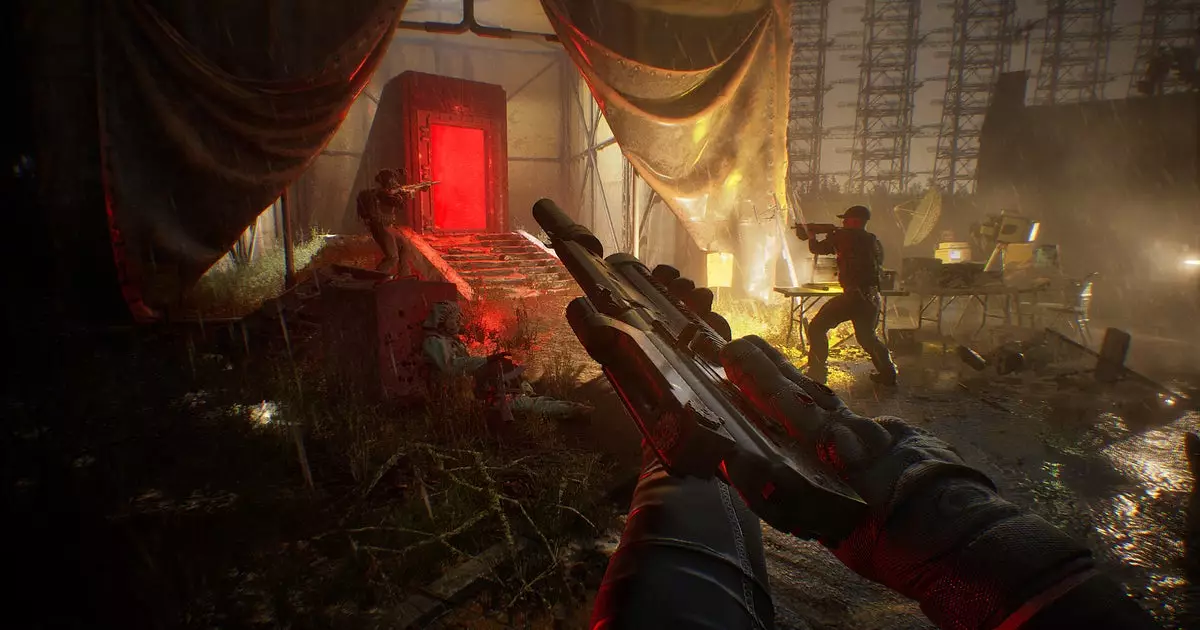Phantom Line emerges as an intriguing participant in the realm of open-world gaming, presenting a striking narrative that weaves together elements of existence and existential dread. Set against the backdrop of a paranormal crisis of unimaginable proportions, the game escalates the stakes so dramatically that the advent of nuclear war is reduced to a minor detail—a mere afterthought in the grand scheme. This narrative choice speaks volumes about the game’s ambition and thematic depth, positioning it as an experience defined not just by its gameplay mechanics but by the thought-provoking elements that challenge the player’s perception of horror and survival.
The game’s atmosphere is reminiscent of films from directors like David Lynch and Andrei Tarkovsky, employing surrealistic imagery and philosophical undertones to create a chilling atmosphere. This aesthetic manifests itself in unsettling environments, where even the most mundane labyrinths can transform into spaces of terror, teeming with malevolent entities. As players navigate this bizarre world, they are constantly reminded that the horror they face is not only external but also existential, prompting them to reflect on their own choices within this strange fabric of reality.
One of the standout features of Phantom Line is its innovative HUSK system, allowing players to swap between different artificial bodies during combat. This mechanic adds a layer of strategic depth, enabling instant adaptation to shifting battle conditions. However, a certain aspect of this system raises questions. The potential for tactical advantage comes at the expense of a personal connection to the character being controlled. Players must grapple with the challenge of navigating empathy for these husks, which are simply manifestations of their strategic needs rather than fully-fledged characters.
In combat, these husks can be manipulated to function as decoys or scouts, creating opportunities for solo players who may not have a full team at their disposal. However, this reliance on NPCs inadvertently highlights the nuances of team dynamics and artificial intelligence in gaming; the success of a mission can hinge not only on player skill but also on the effectiveness of AI companions. Thus, players may find themselves frequently faced with the dual challenge of managing their own capabilities while compensating for less-than-stellar AI partners.
Phantom Line takes an evocative stance on the human condition, suggesting that in order to combat the enveloping anomalies, one must embrace those very horrors. The concept of augmenting one’s body with “exotic elements” introduces both excitement and trepidation—a theme that is expertly threaded into the game’s narrative. The notion of sacrificing one’s humanity for the sake of survival serves as a poignant commentary on the lengths individuals may go to confront perilous situations, resonating deeply within the psychological horror genre.
Furthermore, the players’ relations with various forms of opposition—ranging from fellow human soldiers to monstrous entities from other dimensions—creates a multi-faceted conflict. This is not just an army of enemies to defeat; they are embodiments of the protagonist’s internal struggles, forcing players to reckon with their choices and the moral implications of becoming that which they seek to destroy.
Between intense engagements, players retreat to a nuclear submarine that serves as a customizable base. This unique space allows players to reflect upon their victories and failures, decorating their cabin with an array of weapons and artifacts from their expeditions. This downtime emphasizes the importance of strategy outside of immediate combat, encouraging players to consider their long-term goals and the emotional toll of their journey.
The game’s design reflects a careful balance between chaotic encounters and contemplative moments, creating a cohesive experience that rewards players not only for their tactical prowess but their capacity for introspection. As they navigate the psychological labyrinth of Phantom Line, players are left to reflect on their own humanity amidst the ashes of their choices.
Phantom Line is more than just a game; it is a psychological exploration of fear, choice, and the ramifications of battling otherworldly horrors. With its distinctive mechanics, rich narrative, and haunting aesthetics, it captivates players while challenging them to confront their own humanity. As the gaming landscape continues to evolve, Phantom Line stands as a testament to the power of interactive storytelling and the potential of video games to delve into the darkest corners of existence itself. Whether adventurers are ready to confront their fears or simply engage in thrilling gameplay, one thing is clear: Phantom Line is an experience that lingers long after the game is paused.


Leave a Reply